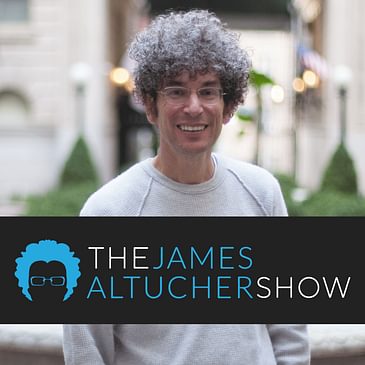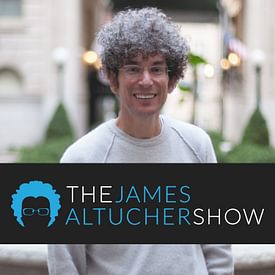A Note from James:
Today, we've got a returning guest, a fan favorite, and someone whose work has consistently left a mark on this podcast—Ryan Holiday. We've talked about many of his books, from "Trust Me, I'm Lying" to his series on stoicism, including "The Obstacle is the Way". His latest work, "Right Thing Right Now: Good Values, Good Character, Good Deeds", is part of his Stoic Virtue series and is packed with insightful stories and practical advice on how to live a virtuous life. Ryan always brings fascinating examples and compelling narratives that not only entertain but also offer deep, actionable insights. So, let's jump right into it with Ryan Holiday.
Episode Description:
In this episode, James Altucher sits down with Ryan Holiday, a prolific author and modern stoic philosopher, to discuss his latest book, "Right Thing Right Now". This book is a profound exploration of the virtues of good values, good character, and good deeds, and how these principles can be applied to everyday life to achieve peak performance and personal growth. Ryan shares powerful stories and historical examples that highlight the importance of doing the right thing, even when it's difficult. Listeners will gain unique perspectives on how to navigate challenges and make ethical decisions that benefit both themselves and society.
What You’ll Learn:
- The Real Benefits of Virtue: Discover how practicing good values and character can lead to a more fulfilling and successful life.
- Historical Lessons: Learn from historical figures who embodied stoic principles and made significant impacts on society.
- Practical Stoicism: Get actionable advice on how to incorporate stoic virtues into your daily routine.
- Overcoming Modern Challenges: Understand how ancient wisdom can be applied to solve contemporary problems and improve personal resilience.
Chapters:
- [01:30] – Introduction and Background on Ryan Holiday
- [03:15] – The Unique Dimensions of "Right Thing Right Now"
- [07:00] – The Evolution of Ryan’s Stoic Journey
- [14:26] – Thomas Clarkson and the Abolition of the Slave Trade
- [20:00] – Historical Parallels and Modern Applications
- [25:01] – The Importance of Community in Practicing Virtue
- [33:45] – Learning from Past Leaders: LBJ, Malcolm X, and More
- [45:13] – The Role of Storytelling in Spreading Wisdom
- [51:46] – Personal Reflections on Changing One’s Mind
- [01:03:00] – Concluding Thoughts and Future Projects
Additional Resources:
- Ryan Holiday's Official Website
- Purchase "Right Thing Right Now" on Amazon
- The Obstacle is the Way by Ryan Holiday
- Epictetus' Discourses and Selected Writings
- Marcus Aurelius’ Meditations
------------
- What do YOU think of the show? Head to JamesAltucherShow.com/listeners and fill out a short survey that will help us better tailor the podcast to our audience!
- Are you interested in getting direct answers from James about your question on a podcast? Go to JamesAltucherShow.com/AskAltucher and send in your questions to be answered on the air!
------------
- Visit Notepd.com to read our idea lists & sign up to create your own!
- My new book, Skip the Line, is out! Make sure you get a copy wherever books are sold!
- Join the You Should Run for President 2.0 Facebook Group, where we discuss why you should run for President.
- I write about all my podcasts! Check out the full post and learn what I learned at jamesaltuchershow.com
------------
Thank you so much for listening! If you like this episode, please rate, review, and subscribe to “The James Altucher Show” wherever you get your podcasts:
Follow me on social media:






